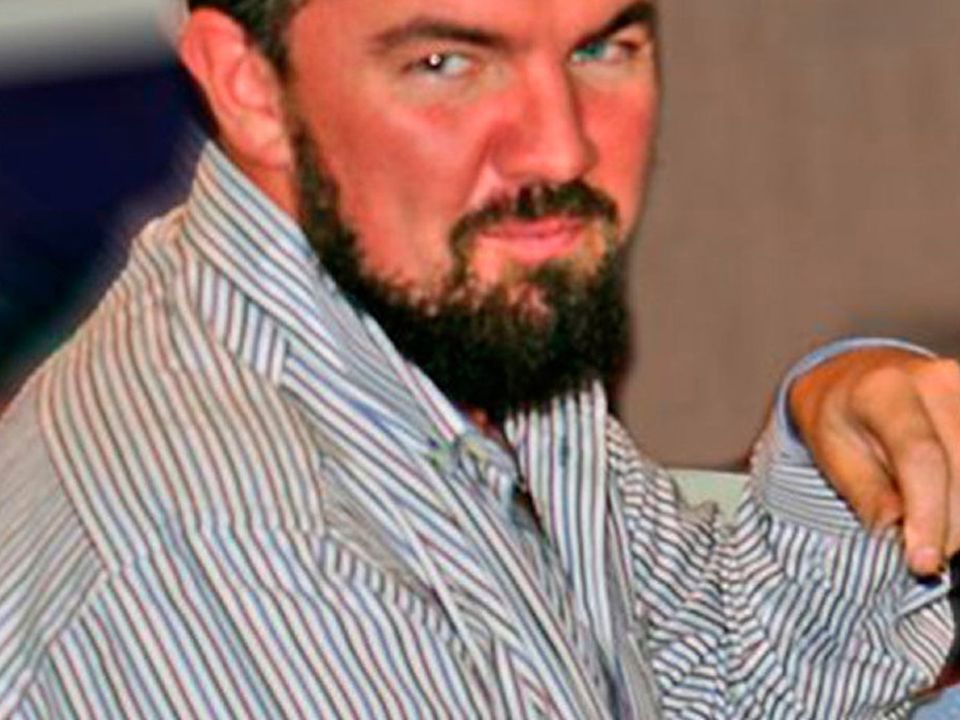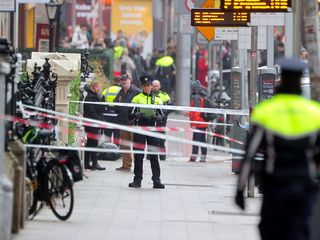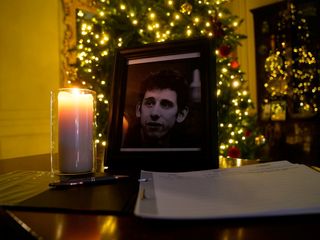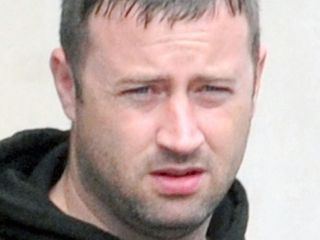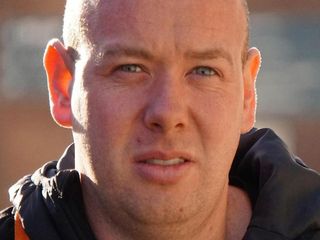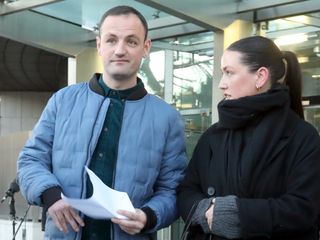Chainsaw murderer who chopped up pal and dumped body parts in Grand Canal loses appeal
Paul Wells Snr (55) of Barnamore Park, Finglas, Dublin 11, admitted shooting dead Dubliner Kenneth O'Brien and dismembering his body with his victim's own chainsaw
Victim Kenneth O'Brien
Chainsaw murderer Paul Wells Snr, who was sentenced to life in prison for shooting a father-of-one in the back of the head before dismembering him and dumping his body parts into a suitcase found in the Grand Canal, has failed in a bid to overturn his conviction.
Lawyers for the appellant, who argued he was acting in self-defence when he shot Kenneth O'Brien in January 2016 at Wells Snr's home, had submitted to the Court of Appeal that the trial judge's charge to the jury was "incoherent" in parts.
The trial heard that despite a cover-up, evidence led gardaí to Wells Snr, who maintained his claim of self-defence, even after a post-mortem exam found that the gun had been held up against the back of his victim’s head.
Wells Snr (55) of Barnamore Park, Finglas, Dublin 11, admitted shooting dead Dubliner Mr O’Brien and dismembering his body with his victim's own chainsaw. However, the father-of-five pleaded not guilty to murdering the 33-year-old at his home on January 15 or 16, 2016.
In November 2018, Wells was found guilty of murder by a unanimous jury at the Central Criminal Court before Mr Justice Paul McDermott and was sentenced to life imprisonment.
Wells Snr claimed that the deceased had wanted him to murder Mr O’Brien’s partner, so that he could take their child back to Australia, where he had previously lived.
Wells told gardai that Mr O’Brien had brought a gun to his house for this purpose on the evening of January 15, 2016, but that the appellant didn’t want to do it. He claimed that a scuffle ensued when Mr O’Brien allegedly suggested he make it look like sexual assault. Wells Snr said that when the gun fell, they both tried to get it, but that he got to it first and shot his "friend", Mr O'Brien.
Wells Snr said that he then panicked, "chopped him [O'Brien] into pieces" with a chainsaw the deceased had lent him, put the torso into Mr O’Brien’s suitcase and dumped it in the Grand Canal, where it was later discovered.
At the Court of Appeal hearing, Brendan Kelly KC, for Wells, told the three-judge court that Ms Justice Carmel Stewart's charge to the jury could have been "incoherent, disjointed and incomprehensible" to lay jurors because of its structure and it "not being the most straightforward" in parts.
Counsel said the use of "double negatives in the charge did not help" and that this made some paragraphs of the transcript regarding self-defence "utterly confusing".
At the Court of Appeal today, Ms Justice Ní Raifeartaigh said lawyers for the appellant had submitted that the judge’s charge to the jury was “insufficient or incoherent in explaining the defence of self-defence” and that it “presented the options other than murder as ‘theoretical’ options only”......
Ms Justice Ní Raifeartaigh said the appellant’s lawyers submitted the trial judge also “in effect, reversed the burden of proof” by saying that it was for the accused to “raise some reasonable possibility regarding his innocence”.
Read more
It had been submitted by the appellant’s lawyers that “it would have confused the jury by saying that they ‘must decide whether the prosecution had excluded, beyond reasonable doubt, the reasonable possibility of the existence of a defence of self-defence’”.
It was submitted that this direction on “the key issue in the case” meant “in no way could it be argued that the jury clearly understood the law as it applied to the facts in this case”.
In dismissing the appeal, Ms Justice Ní Raifeartaigh said it was not necessary for a trial judge to follow any “particular model” in explaining a defence of self-defence to a jury, “provided the essential matters” are covered.
“The court is satisfied that the trial judge, in fact, did so,” said Ms Justice Ní Raifeartaigh.
“The bottom line is that if one reads the charge as a whole, the jury can have been in no doubt as to where the burden of proof for a murder conviction lay and when the verdicts of manslaughter or acquittal would arise,” she said.
Ms Justice Ní Raifeartaigh noted that no requisition “at all” had been raised by defence counsel regarding how the judge charged the jury on self-defence but the defence had raised “detailed requisitions” on other matters.
Ms Justice Ní Raifeartaigh said that this “cannot possibly be an oversight” by Wells’ legal team at trial and that “the inference must be drawn that they failed to raise this because they must have considered that the jury had been properly instructed”.
The judge noted that the jury “never raised any question about the charge on self-defence” which demonstrated that it “could not have been incoherent”.
Ms Justice Ní Raifeartaigh said: “Nothing could possibly have given the jury the impression that the appellant was not entitled to rely on self-defence.”
“On the contrary, the trial judge said they should acquit him [Wells] if they considered that he was in fear and if the deceased got the gun that he would shoot him,” said Ms Justice Ní Raifeartaigh.
Ms Justice Ní Raifeartaigh said the appeal "has all the hallmarks of an exercise conducted by a new legal team combing the transcript for errors many years after the trial itself".
She said this was "an exercise divorced from the reality of the trial itself and the impressions of counsel who were on the ground at the time".
The judge said there was “no concern that a fundamental or real injustice occurred in the trial” and then dismissed the motion and appeal “in its entirety”.

